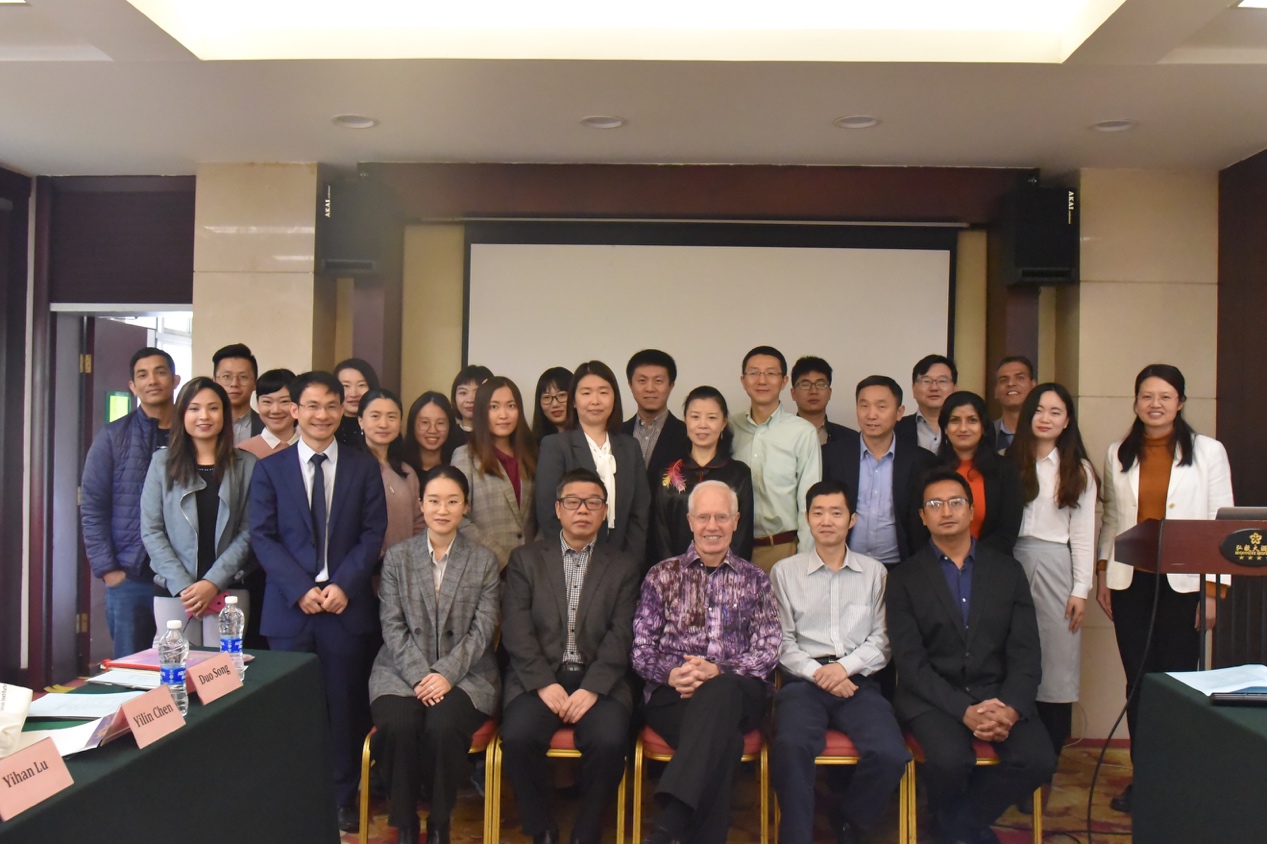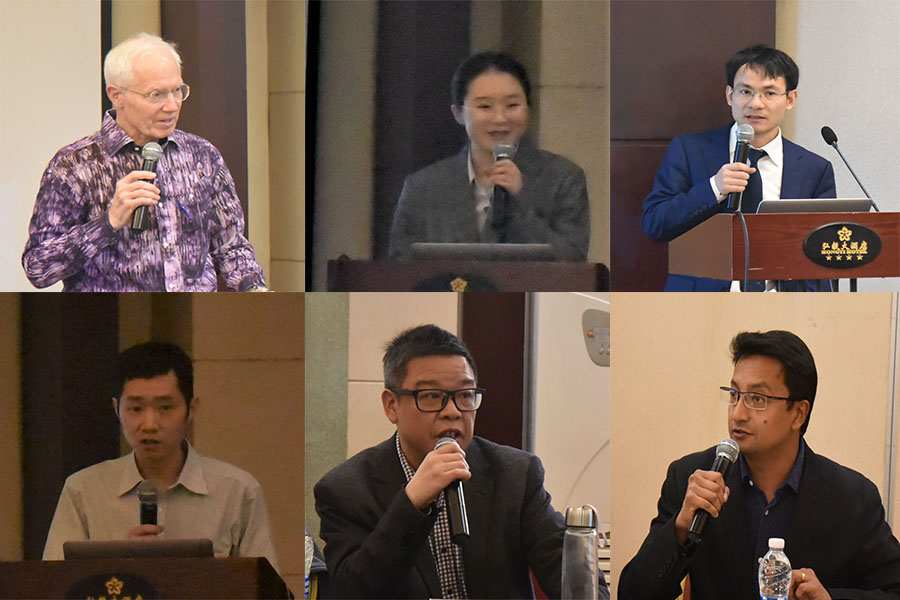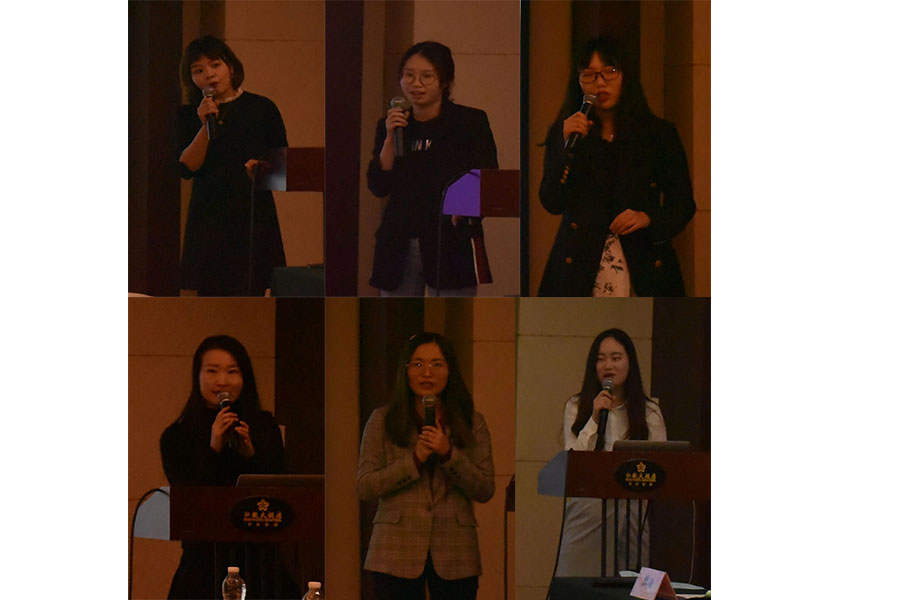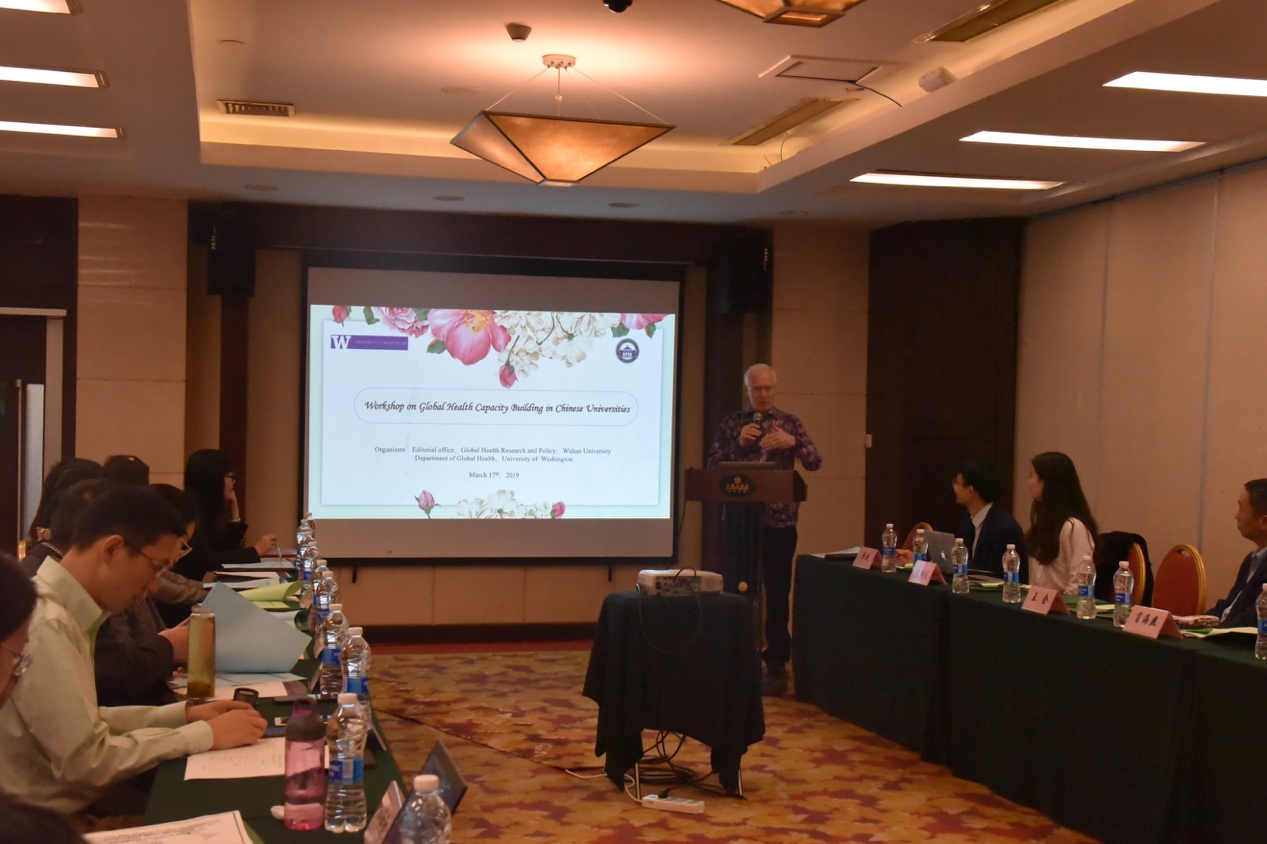On March 17, the Wuhan University Global Health Institute, in collaboration with the Department of Global Health, University of Washington (UWDGH), conducted a workshop in Wuhan with faculty scholars and students who had been part of a China Medical Board (CMB) program with the UW for capacity building in global health. The workshop was funded by the journal of Global Health Research and Policy (GHRP) of Wuhan University and was hosted by Dr. Hao Li, Deputy Editor in Chief of GHRP and Affiliate Associate Professor of the UWDGH. The workshop was a unique opportunity for the six annual cohorts of faculty and students to share their experiences from program.

Group photo of all participants
Also, the vice director of Office of International Affairs of Wuhan University, Mr. Gui Ling, who gave a warm welcome speech to all the participants, attended the workshop. Other special invitees who contributed to the workshop were Ms Minhui Yang, CMB program and grants manager in Beijing Office, Professor Stephen Gloyd, the director of the UW CMB program, Professor Shuiyuan Xiao (senior professor from Central South University), and Dr. Biraj Man Karmacharya from Kathmandu University.

Welcome speeches by organizers and distinguished guests
The Chinese scholars and students who presented came from Sun Yat-san University, Fudan University, Peking University, Central South University, and Wuhan University. They have all benefited from UW’s CMB program. Each person shared their experiences and benefits from this program and also proposed suggestions for further collaboration to strengthen global health capacity and influence.

Speeches and comments by invited scholars
Speeches by UW graduates (funded by CMB)
In their presentations, the faculty scholars, UW graduates, and other participants described the advantages of the UW-led program, which included rich faculty resources on global health, diversified overseas projects involvement in low- and middle-income countries, partnerships between the UW and other institutions, flexibility, and sufficient funding for the faculties and students to conduct global health work. Suggestions for future activities included the following: 1) CMB or other funding sources should be explored to continuously support this kind of capacity building programs; 2) integrate the program into China’s global strategies, such as the Belt and Road Initiative and China’s Global Health Strategy; 3) take advantage of Chinese institutions that may provide support to implement similar capacity building programs in other low and middle income countries (LMICs). Participants also suggested that Chinese and American universities can still collaborate in many ways so that the Chinese actors can better act as a key player in global health.

Professor Stephen Gloyd concluding the workshop
To summarize the workshop, Professor Stephen Gloyd concluded that, “We have a shared mission, we have shared values, and now we have many shared experiences. We should consider ourselves as a family and do things together. We will continue to work to strengthen global health everywhere. But remember, the support for the UW is not the desired result. The desired result is to support for institutions throughout China, Nepal, Mozambique, Kenya and other countries to do the kinds of things that we have been struggling to do…so we can create more education opportunities that make us all better practitioners of what we call global health.”
Photo by Li Manyu
Edited by Zheng Yayun


